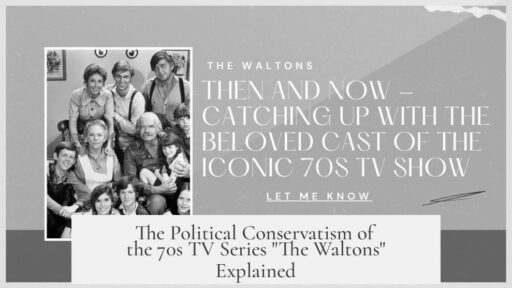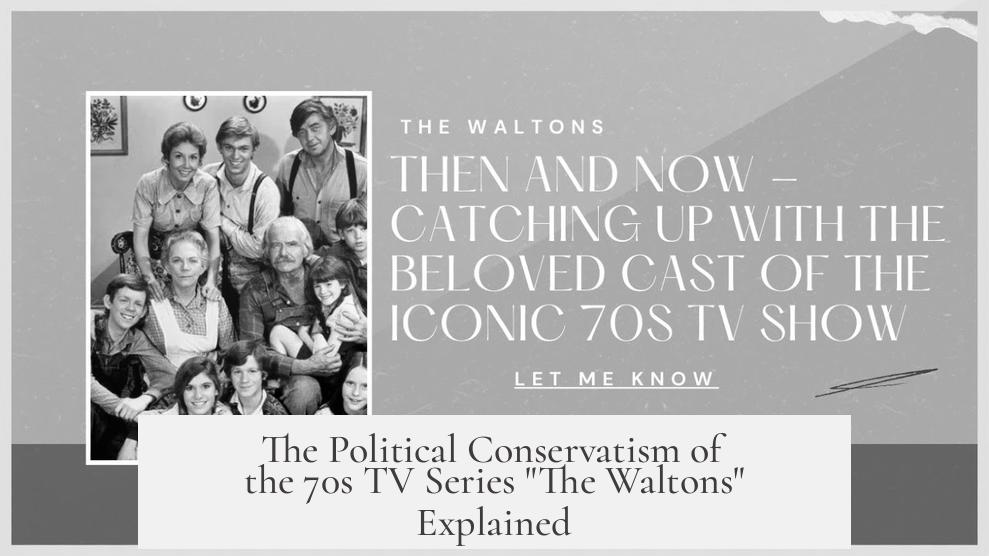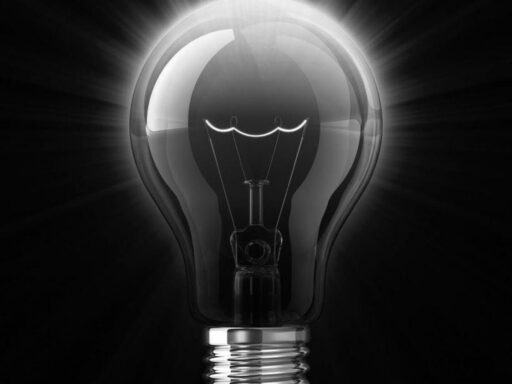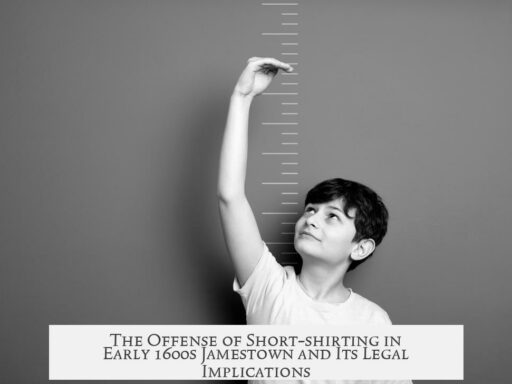The 1970s TV series “The Waltons” is generally characterized as politically reactionary and conservative due to shifts in societal context and political alignment despite its initial progressive elements. When originally aired, it reflected New Deal democratic values and showed openness to social issues beyond many contemporaneous programs. The family depicted was mostly free from racial prejudice, with minor exceptions reflecting nuanced social attitudes of its time.
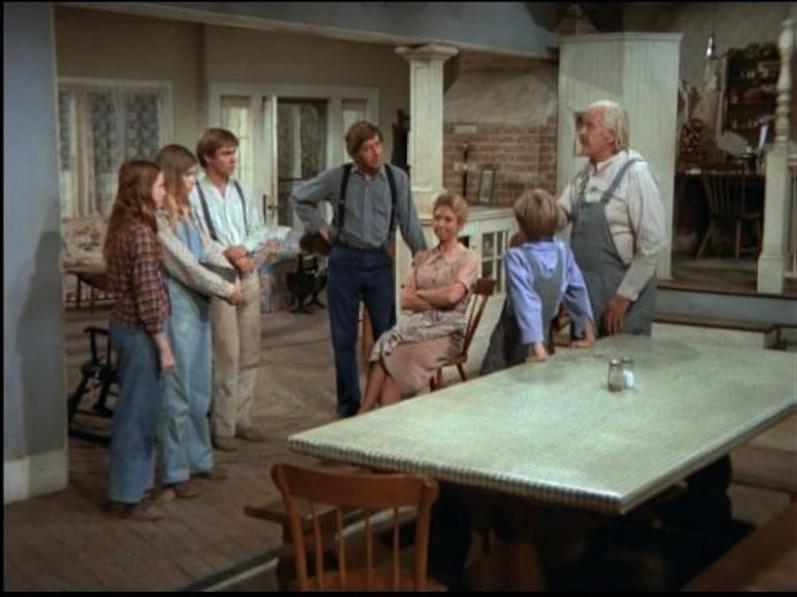
Over time, political landscapes changed. The series aired during a period when the United States elected Jimmy Carter, a Southern evangelical Democrat. However, by the 1980s, evangelical Christians and Southern states veered toward conservative politics. This shift altered how the show was perceived socially and politically.
The Waltons frequently integrated theological and moral themes. In the context of modern America, especially after 2000, these themes appear more traditional and conservative, contrasting sharply with mainstream secular and progressive trends. The show’s moral outlook now seems less progressive compared to contemporary norms.
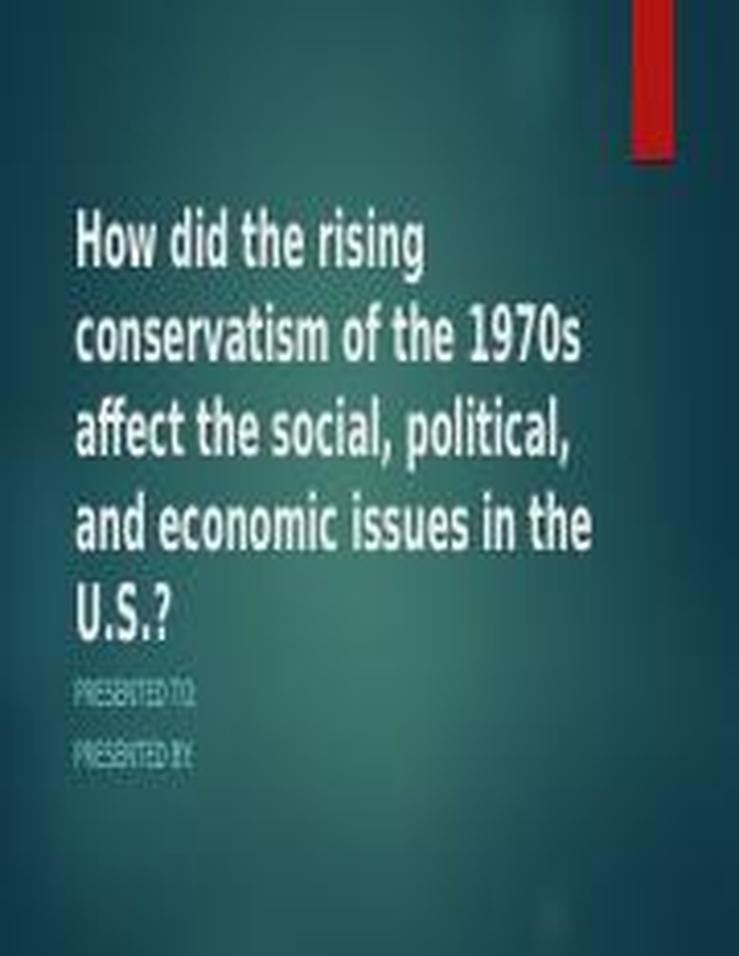
Its association with family values-oriented networks—such as the Hallmark Channel, ABC Family, and Christian broadcasters—further cements this reputation. These networks target viewers who prioritize traditional family and religious values, reflecting an increasingly politicized and conservative audience. As a result, the series became linked to a conservative cultural agenda.
Additionally, the shift from airing on mainstream networks that broadcast liberal shows to niche channels reinforces the show’s conservative image. In the original broadcast era, networks balanced shows like The Waltons with progressive programs like “All in the Family.” Following the rise of evangelical political influence led by figures like Jerry Falwell and Pat Robertson, family values voters, a core audience of The Waltons, mostly aligned with the Republican Party.
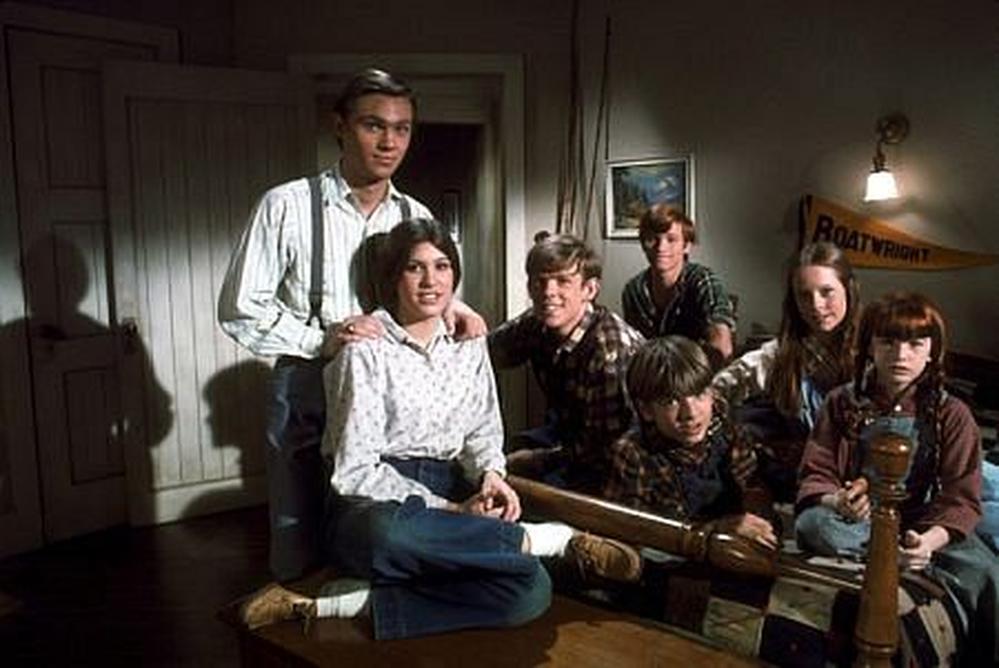
- The Waltons began as a show supportive of New Deal values and social progressiveness in the 1970s.
- Political realignments, especially the conservative swing of evangelical Christians in the 1980s, altered its perceived stance.
- The show’s moral and theological themes are seen as conservative today.
- Its repeated airing on family and Christian-oriented cable networks further associates it with conservative culture.
- The broader political shift of family values voters to the Republican Party contributes to its reactionary label.
Why Has the 70s TV Series “The Waltons” Generally Been Characterized as Politically Reactionary and Conservative?
Simply put, “The Waltons” is often labeled politically reactionary and conservative because it embodies a nostalgic vision of family, faith, and traditional values that contrast sharply with modern progressive ideals. But this straightforward answer barely scratches the surface of a much richer story—a story blending shifting political landscapes, social norms, and television networks. Let’s walk through the fascinating layers that have shaped this perception.
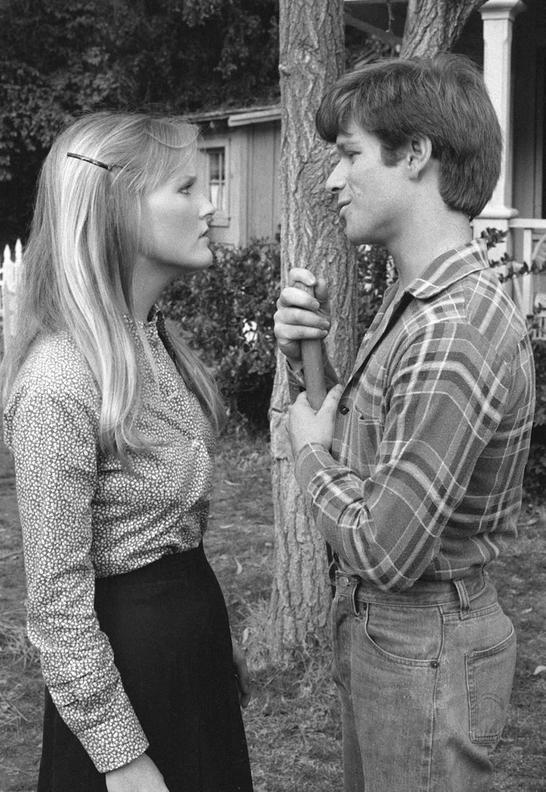
The Walton family might seem like an old-fashioned bunch—centered on rural life, faith, and tight-knit bonds. However, surprisingly, when “The Waltons” debuted in the early 1970s, it embraced some fairly progressive stances, especially in context of its time. The Waltons themselves were “good New Deal Democrats,” supporting government programs aimed at reducing poverty and fostering economic justice during the Great Depression. This connected them to a spirit of social progress.
Interestingly, the show went beyond mere nostalgic storytelling. It tackled theological and moral questions openly, a rarity for its era. For example, while the third son, Ben, displayed a hint of prejudice, it was primarily anti-Semitism—not anti-black racism—that the show explored. This reveals a level of nuance often missing in simplistic “family-values” programming.
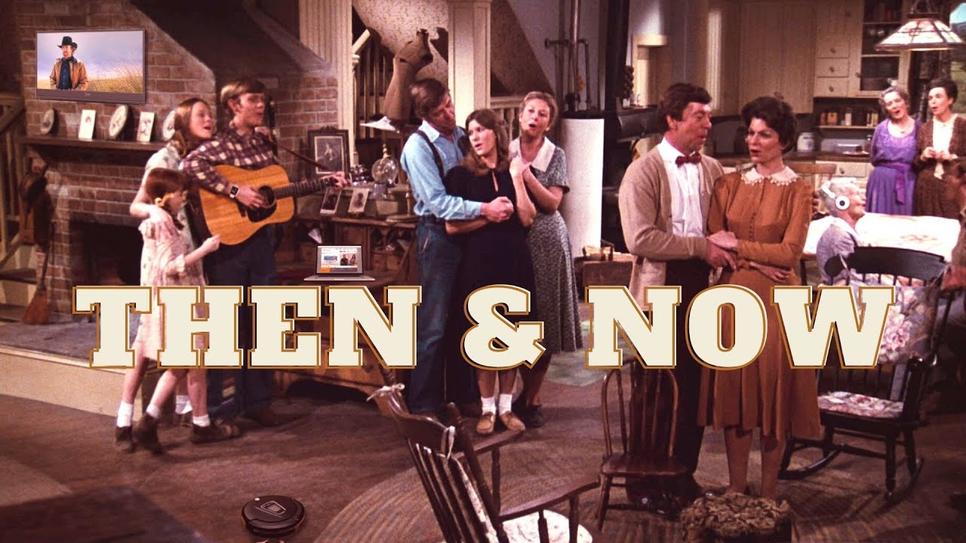
However, here’s where the plot thickens.
When “The Waltons” first aired on CBS, the political atmosphere looked very different than it does today. In 1976, the nation elected Jimmy Carter—a Southern evangelical Christian from Georgia—as President. This was a time when evangelical Christians still aligned with the Democratic Party. But the following decades witnessed a remarkable shift. Evangelicals increasingly embraced conservative politics, and Southern states trended rightward.
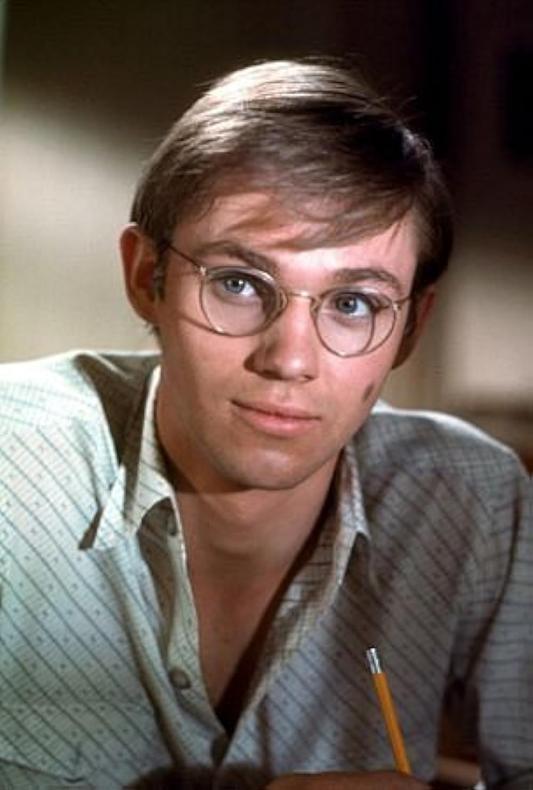
As the 1980s rolled in, “The Waltons” became associated more with conservative ideals than progressive ones. This evolution stems from the show’s core themes: family, faith, and rural values. These themes became rallying points for new cultural and political movements centered on “family values,” championed by influential conservative figures like Jerry Falwell and Pat Robertson.
This transition was neither sudden nor accidental.
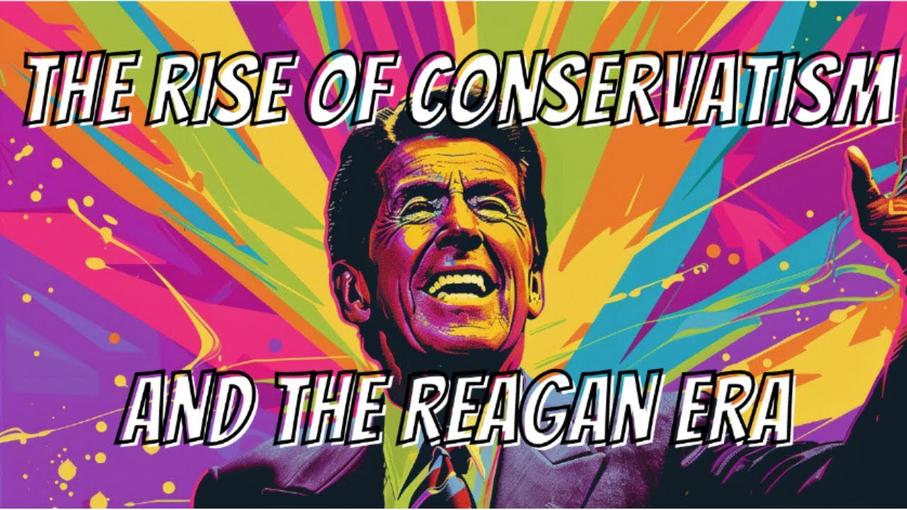
Networks promoting “wholesome family entertainment” gravitated towards “The Waltons.” Hallmark Channel, ABC Family, and Christian networks became enthusiastic hosts, keeping the series alive in syndication. In doing so, they anchored the show firmly within a conservative cultural bubble that often clashes with progressive or secular viewpoints today.
At the same time, mainstream media moved on. Once a prime time staple on CBS—a network that also aired liberal shows like “All in the Family” and “Maude”—”The Waltons” no longer fits comfortably into the diverse political tapestry of current programming. Instead, its quaint moral and theological discussions now feel out of step with post-2000 America’s mostly secular humanist mainstream.
Think about this: When “The Waltons” originally aired, it was part of a broader, ideologically mixed TV platform. Now, it resides among channels known for overt religiopolitical messaging. This repositioning reinforces the perception that the show is politically conservative, even reactionary.
Why does this matter? Because media consumption frames perception. If a show runs alongside progressive, boundary-pushing series, it naturally seems less conservative. But if its audience mainly comprises viewers who cherish traditional family values, the show’s reputation aligns accordingly.
What lessons can today’s content creators draw from this? Firstly, the cultural context matters immensely. A TV series’ message can shift dramatically in public interpretation as society changes. Secondly, the platforms that support a show impact its legacy as much as its content does. Networks specializing in family-oriented Christian programming reinforce a certain ideological image.
Some might ask: Was “The Waltons” truly politically reactionary at its core? The evidence suggests not entirely. Although its themes resonate with conservative values now, at launch it mixed progressive sympathy with traditional mores. The political environment marched on, but the show stayed constant, and public perception adjusted around it.
Consider this analogy: “The Waltons” is like an old family photo. In one era, the photo is warm and welcoming; in another, it looks dated and conservative. The picture doesn’t change. Society’s interpretation does.
For fans or scholars curious about TV’s political journeys, “The Waltons” offers a textbook case in how time, politics, and media distribution converge to shape a cultural icon’s identity. Today, its legacy straddles appreciation for social issues of the past and alignment with a more conservative, reactionary reputation.
In summary:
- “The Waltons” began as a show with progressive New Deal ideals and nuanced moral questions.
- Political realignments in the 1980s pushed evangelical audiences toward conservatism, changing how the show was seen.
- Its syndication on family-value-oriented networks cemented its conservative image.
- Modern secular society now views the show as quaint or politically reactionary because it emphasizes traditional faith and family values.
So next time you tune in to “The Waltons” or see it on one of those family networks, remember—it’s both a snapshot of a past political moment and a lens through which we view ongoing cultural debates. And that is what makes it endlessly fascinating.
Have you noticed how your own perceptions of TV shows change over time? What other series might have undergone similar ideological rebranding? Let’s talk about that!
Why is “The Waltons” seen as politically reactionary today despite its progressive roots?
Initially, The Waltons reflected New Deal democratic values and addressed social issues ahead of their time. Over decades, shifts in societal norms and politics reframed it as more conservative.
How did changing political landscapes in the 1980s affect the perception of the show?
With evangelical Christians and southern states growing more conservative in the 1980s, The Waltons’ Christian themes began to align with conservative politics, altering how viewers interpreted the show’s message.
What role do family values networks play in the conservative image of The Waltons?
The show is frequently aired on channels like Hallmark and ABC Family, which cater to a family values audience with Christian messages, reinforcing its conservative and reactionary image in modern times.
Why does The Waltons seem outdated or “quaint” in post-2000 America?
Its frequent focus on theological and moral topics feels less relevant today where secular humanism dominates, making the show appear old-fashioned or politically conservative compared to current mainstream media.
How did evangelical leaders influence the political label attached to The Waltons?
Leaders like Jerry Falwell and Pat Robertson helped shift evangelicals into the Republican camp, associating shows like The Waltons with right-wing family values rather than the original Democratic context.
